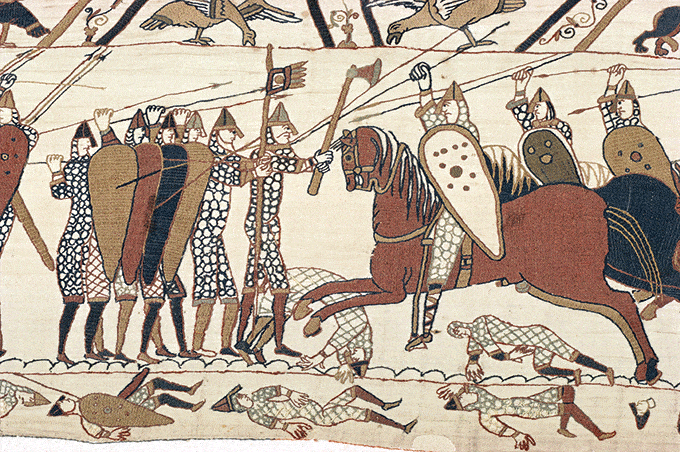
ADVERTISEMENT - CONTINUE READING BELOW
The First Battle of the Marne Was WWI’s Most Important Engagement
Germany came close to winning World War I outright in the first month of hostilities. The only reason it did not was because Germany’s chief of the general staff, Moltke the Younger, panicked in the first two weeks of fighting, and needlessly withdrew two army corps from the Western Front to reinforce the Eastern Front. But for that mistake, WWI would like have been decided in Germany’s favor.
Germany’s plan was to swiftly knock out France before Russia, France’s ally, fully mobilized and brought her weight to bear. To that end, the Germans relied on the Schlieffen Plan, which envisioned a wheeling advance through Belgium and northern France in the shape of a sickle. The sickle’s tip would advance to the west of Paris, then swing back inwards and eastwards to bag the French armies in a giant sack.
Russia mobilized sooner than expected, however, and although not fully ready, flung her armies into Eastern Prussia. Moltke panicked, and although advised by the Eastern Front’s commander that reinforcements were not needed, he withdrew two corps from the Western Front to send to Eastern Prussia. Two corps from the right wing of the German wheeling advance into France. As it turned out, the reinforcements proved unnecessary. By the time they arrived, the Battle of Tannenberg, the decisive battle of the Eastern Prussian campaign, had already been won by the Germans, and the Russian threat had been contained.
On the Western Front, however, the withdrawal of those two corps had weakened the German right wing, and a gap began to open between the two rightmost German armies. A gap that would not have existed if the two corps sent as reinforcements to the Eastern Front had remained in place. The Entente armies exploited the gap by attacking in its direction. To close the gap, the German rightmost army was forced to wheel in early, east of Paris, instead of to its west as the Schlieffen Plan had envisioned.
By making that turn east of Paris, the Germans exposed their right flank to attack from troops based in that city. That brought about the war’s most decisive battle, the First Battle of the Marne, when Entente armies attacked the Germans across the Marne River. The two rightmost German armies were threatened with encirclement and destruction, and Moltke had a nervous breakdown upon hearing the news.
Moltke’s subordinates ordered a retreat to the Aisne River, shattering German hopes of an early victory. Instead, Germany would end up fighting a war of attrition, in which the Entente would steadily bring their superior resources to bear, and steadily stack the deck against Germany. The Germans would never come as close to victory as they had during that first month of fighting.

